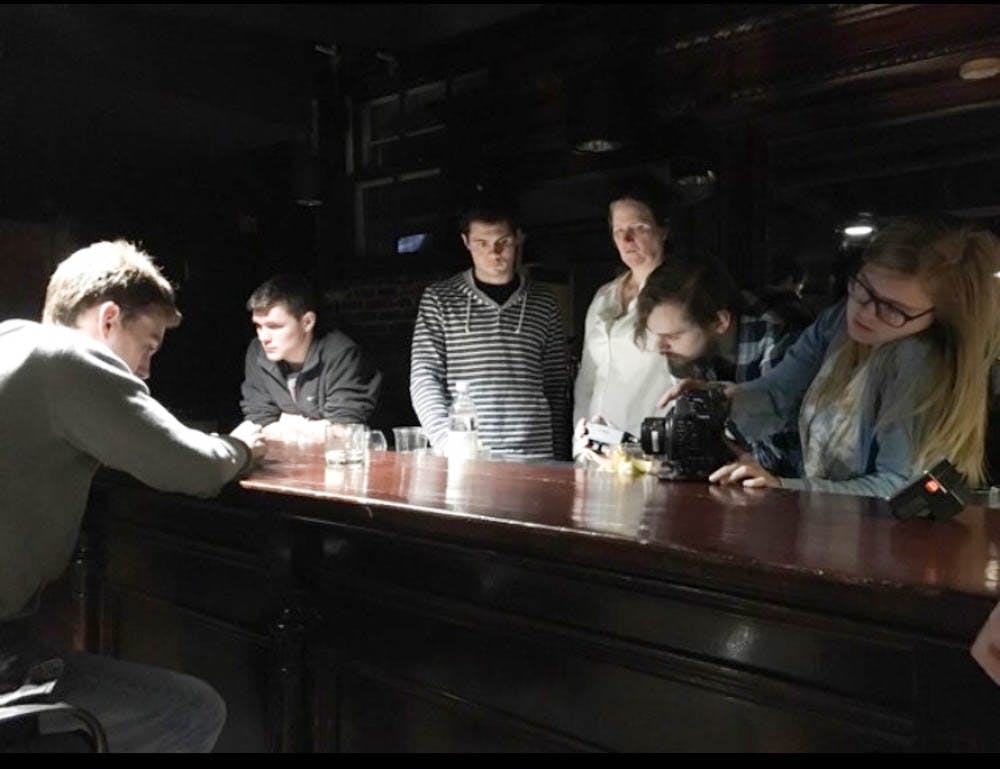The Oscars are coming up this weekend and, as tradition dictates, many of the year’s best films will not be represented. But just because the Oscars are missing out does not mean you have to. So, in the interest of expanding our collective cinematic palate and resisting the cultural hegemony of that looming golden statue, here are five seldom seen films from the past year that deserve more attention:
“A Ghost Story”
The beginning scenes of David Lowery’s astounding, emotionally wrenching meditation on grief and time operate as kind of litmus test: We watch a woman sit on her kitchen floor and eat nearly an entire pie over the course of a few minutes. If the moment makes you fall asleep, maybe this one’s not for you. But if you find that you can’t look away, then “A Ghost Story” may affect you as few other films do. It rests on a simple concept: After a man dies, he returns, draped in a white sheet, to the house where he lived before his death. At first, it’s just him and his wife, silently mourning from opposite sides of the grave. But as the film moves on, it becomes more cosmic in scope and goes in directions you’d least expect. Shot under wraps and on a shoestring budget, “A Ghost Story” is a minor miracle of a movie.
“Lady Macbeth”
If you’re on the lookout for a complex, powerful depiction of female rage, skip “Three Billboards Outside Ebbing, Missouri” and watch this. Based on a novella by Nikolai Leskov and adapted by British playwright Alice Birch, “Lady Macbeth” concerns a young woman living in rural 19th century England, married to a brute of a man and stuck in an isolated country mansion. When her husband leaves the estate for a business trip, she starts to push back against constricting patriarchal values and act on her own desires. But what begins as a story of Victorian repression and liberation quickly morphs into something more interesting, as our leading lady reveals a chilling psychopathy buried beneath the folds of her elegant gowns. With a discomfiting, focused performance by Florence Pugh in the lead role, “Lady Macbeth” is a fascinating work of supremely knotty feminism whose transfixing power only increases the more shocking and despairing it becomes.
“The Lost City of Z”
Of all the undersung films of 2017, James Gray’s extraordinary explorer’s tale may be the finest. A chronicle of the career of the early 20th century British explorer Percy Fawcett (Charlie Hunham), who spent decades searching for an ancient city in the jungles of Brazil, the film strikes a delicate balance, portraying Fawcett as a man ahead of his time who still could not completely break out of the colonialist mold. Throughout, Gray displays breathtaking classical film craft, making not just pretty pictures but images that are as full of intention as they are lovely. Also featuring terrific performances from Robert Pattinson and Siena Miller and a sensational score from Christopher Spelman, the film is a near-masterpiece about reaching for the sublime — and “The Lost City of Z” finds it.
“Princess Cyd”
2017 was a great year for queer cinema, from the high-profile “Call Me By Your Name” to lesser-known but still worthy titles like “BPM.” Among all these, don’t miss out on “Princess Cyd,” Stephen Cone’s gentle, funny film about growing up and coming out. It takes place over the course of a few weeks in the summer, when Cyd, a high school student who is played with enormous warmth by Jessie Pinnick, goes to Chicago to stay with her aunt, novelist Miranda Ruth. Cone depicts the relationship between the two women with an intimate sensitivity, acutely mapping their awkward differences, accidental insults and cautious affection. Eventually, Cyd meets Katie, who provokes feelings and desires Cyd didn’t know she had. When she talks to Miranda about it, audiences are gifted with a moving, refreshingly low-key coming-out scene. Pair it with the father’s monologue in “Call Me By Your Name” for a soothing brew of queer parenting fantasy.
“The Work”
The only film of 2017 to match “Dunkirk” in terms of sheer intensity might be “The Work,” a documentary from directors Jairus McLeary and Gethin Aldous. Set in Folsom State Prison, the film depicts a yearly project that brings together convicts and men on the outside for four days of group therapy. Together, they dig into their deepest emotional struggles and force themselves to each feel their own pain in its ravaging totality. “The Work” will almost certainly make you cry, because in the face of such raw humanity, there’s nothing else you can do. But the film is also a primal scream of a wake-up call to a contemporary America torn by seemingly insurmountable differences and entrenched hatred. It shows us an impassioned embrace between a former member of the Aryan Brotherhood and a black man, suggesting what is possible without resorting to a facile vision of reconciliation. They’ve put in the work. Will we?

ADVERTISEMENT




